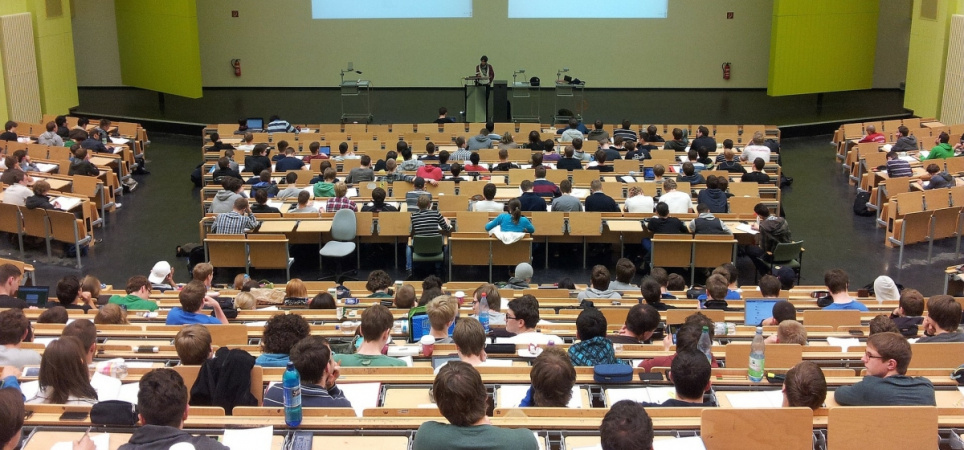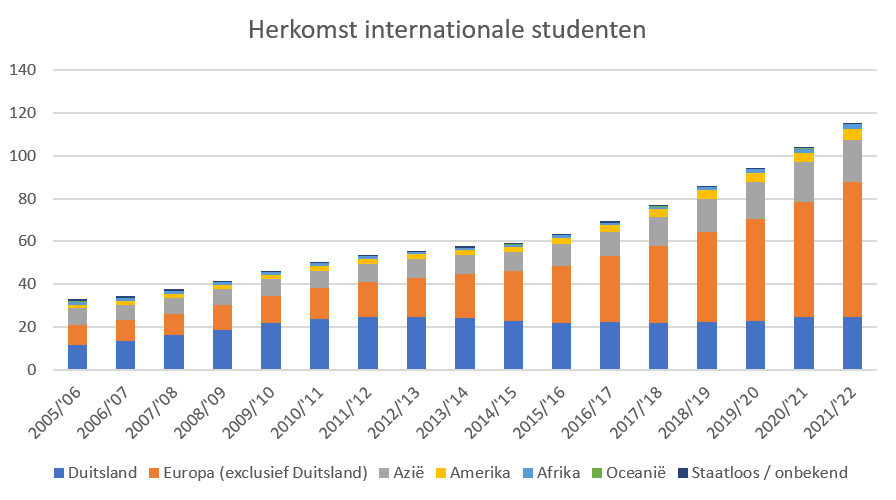40 percent of first-year university students come from abroad
Dutch colleges and universities are still very popular with international students. At the universities, even 40 percent of the first-years will not come from the Netherlands this academic year. At higher professional education institutions this is one in four. The recruitment of foreign students is at odds with universities complaining about growth.

Image: Pixabay
Over the past 16 years, the number of international students has risen faster than the number of Dutch students, according to the latest figures from the CBS† The corona crisis (probably because of the online classes) has not curbed a further increase.
More than 42 thousand of the 115 thousand internationals are studying in the Netherlands for the first time. That is one in four first-year students in higher education. At the university, 40 percent of new students come from abroad.
This academic year, 80,4 thousand international students are studying at universities, compared to 34,8 thousand at universities of applied sciences. European students in particular find their way into Dutch education: in 2005/2006 63 percent of internationals came from Europe and this academic year that number is no less than 76 percent. The influx of German students has remained more or less the same in recent years. In particular, more students from other European countries came to the Netherlands.

Chart by Higher Education Press Agency (HOP). Source data: Statistics Netherlands (CBS)
Popular studies
In higher professional education courses in law, administration, trade and business services drew most students from abroad. But design, art and languages were also popular, just like last academic year. At the university, studies in journalism, behavior and society attracted most internationals.
curb
In recent years, universities have presented themselves as victims of their own success, wrote the Education Magazine in Dec. The employers' organization Universities of the Netherlands (formerly: VSNU) has been lobbying for more legal options to stem the flow of international students for four years now. At the same time, private providers of expensive bridging programs that bring in foreign havists remain welcome on campus, concluded investigative journalist Yvonne van der Meent.
Studying in the Netherlands is too attractive. Dutch universities are high in the international rankings, the tuition fees for EU students are reasonable and there are hardly any entry restrictions. Because there is free movement of people within Europe, universities cannot refuse EU students who meet the admission requirements. The only option universities have now is to put a student freeze on popular studies. But Dutch students are also the victims of this.
Not easy
Universities therefore want the option of limiting only the number of study places on the English-language study routes. They were heard by outgoing Minister of Education Ingrid van Engelshoven. But the bill that makes a numerus clausus possible for English-language tracks has been shelved for almost a year due to the fall of the cabinet. The new education minister Dijkgraaf is also in favour, but he warns that it is not just regulated by law. The “new set of instruments” will be available for the first time in the 2023/2024 academic year.
Also read: Recruitment of foreign students is at odds with complaints about growth


